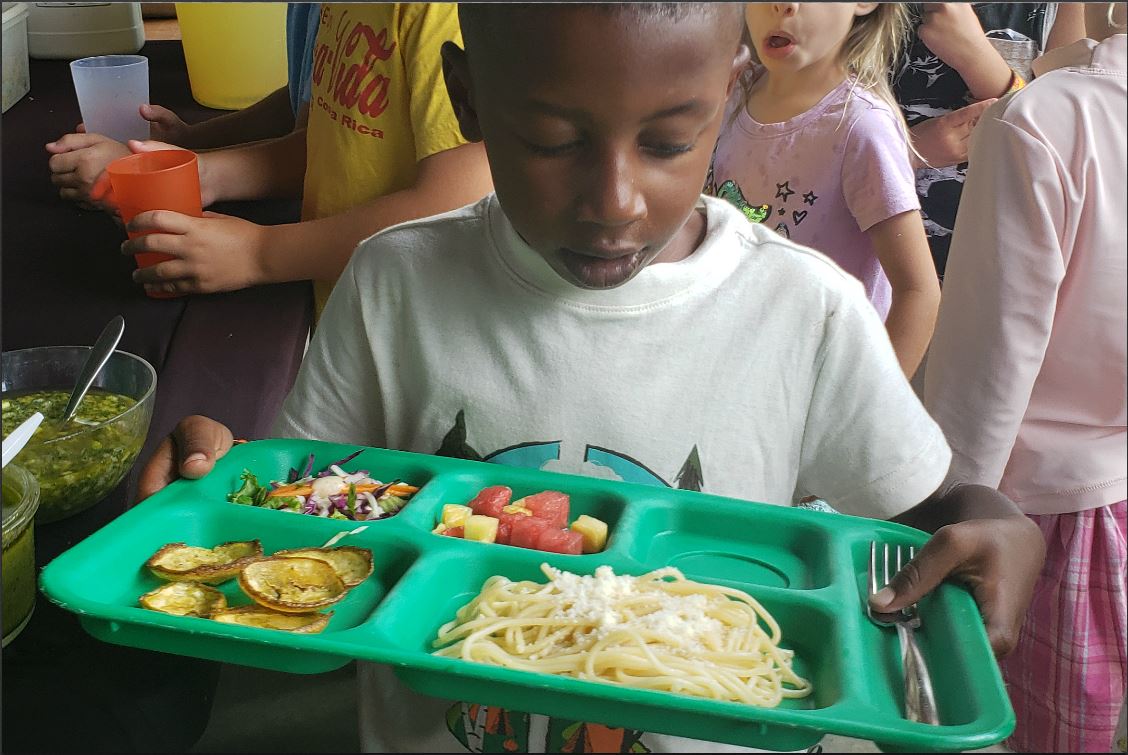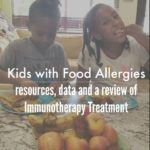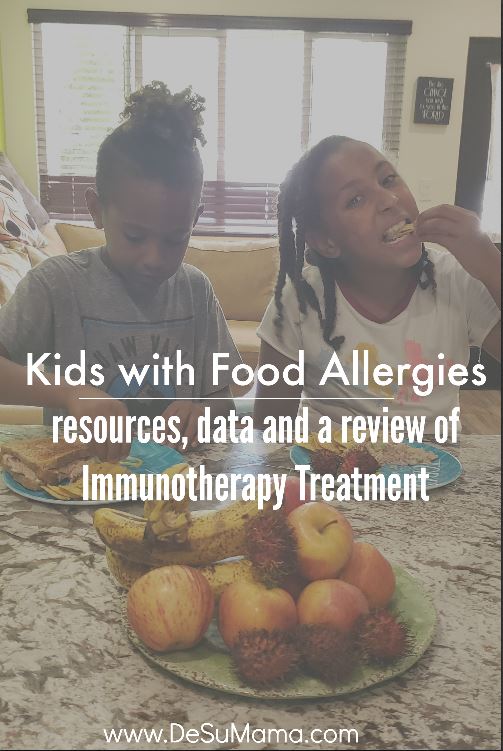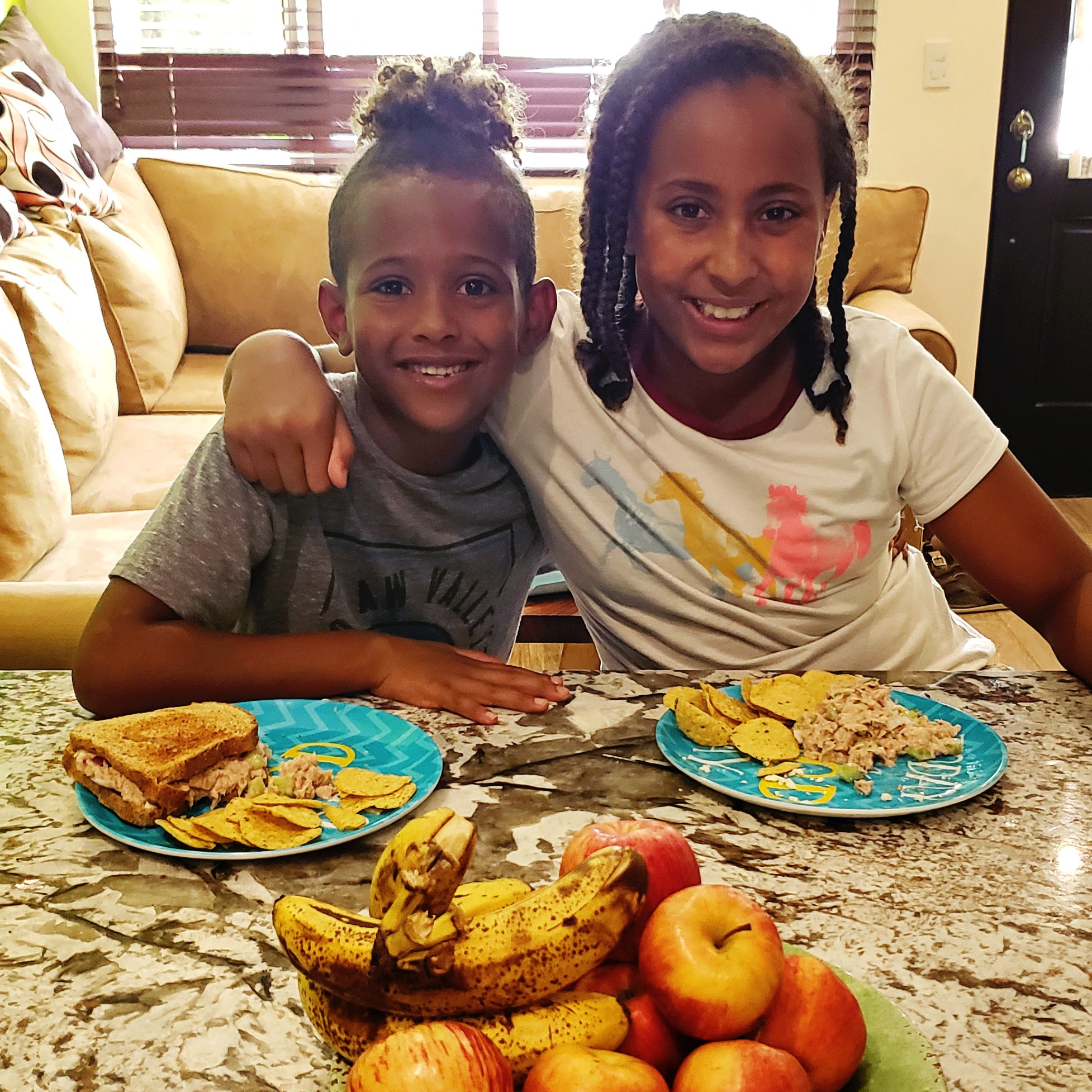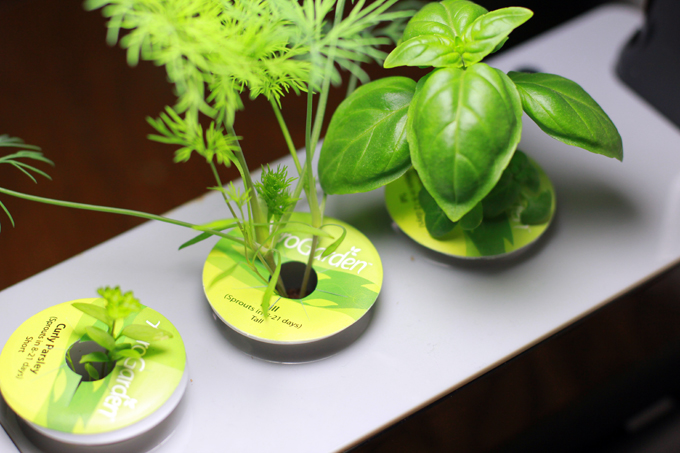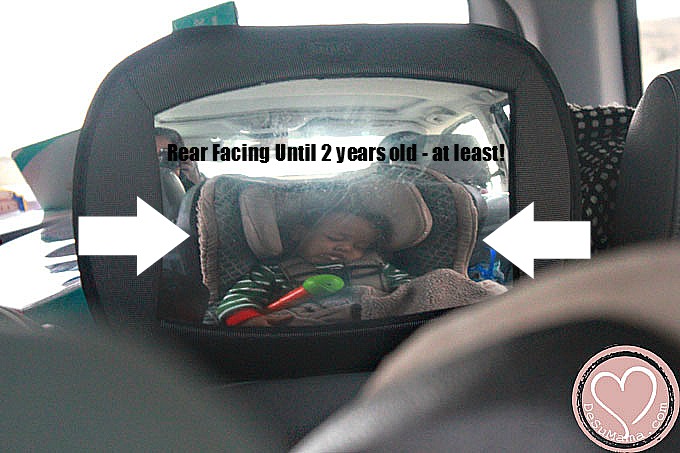The first time I met a child with severe food allergies, I learned how much risk and fear these kids (and their families) manage on a daily basis. Living with children’s food allergies impacts the entire family and parents carry a lot on their shoulders to keep their babies safe and healthy. I’m partnering with Kids with Food Allergies (KFA), a division of the Asthma and Allergy Foundation of America (AAFA) to help spread the information of what that those caring for a loved one with food allergies, specifically peanut allergies, deal with and to discuss the insights on immunotherapy for food allergies, along with reviewing the latest emerging treatments for kids with peanut allergies.
Children’s Food Allergies
The public health burden of food allergy among children in the United States continues to grow and is an area of active research. Because food is a fundamental part of many daily activities and social events, families living with a food allergy must be constantly vigilant to keep the child safe. You can’t just abstain from food and eating, which makes living with food allergies especially taxing.
The current estimate is 7.6% of children in the country are living with food allergy – this about one in every 13 children.
The fear of anaphylaxis (a severe, life-threatening allergic reaction) can take a heavy toll on children and their caregivers. This is such a heavy load for families to carry! Today we’re looking at exciting new treatments and the effectiveness of immunotherapy.
Your Experience Matters
Kids With Food Allergies, a division of the Asthma and Allergy Foundation of America (AAFA) is the largest online support community for food allergies. Their website offers practical, evidence-based education to help parents understand food allergies, along with giving them a safe, private place to connect with one another, ask questions, share recipes, ask questions for an allergist to answer or learn about the latest news, research and clinical trials.
Kids With Food Allergies recently conducted a significant study with patient-reported outcomes from more than 3,000 patients and caregivers called “My Life With Food Allergies.” The results show that food allergies present a higher burden on caregivers than to patients with food allergies themselves.
These findings were presented to the Institute for Clinical and Economic Review (ICER) – a watchdog group who recently assessed the clinical effectiveness and value of treatments for peanut allergy. Thanks to the parent voice shared through the online survey, AAFA was able to present evidence to ICER about quality of life issues impacting families with peanut allergies.
This data really matters! It indicates the importance of sharing personal opinions to understand the larger issues within a community, which will then propel practical changes to the way allergies are researched and treated. I encourage you to join the KFA community to lend you voice to future reporting on such important issues! Register for free at arents can register for free at www.kidswithfoodallergies.org/join
Kids with Food Allergies
Immunotherapy for Food Allergies
I’ve learned a lot while browsing through the free guides on KFA’s website, including these great resources:
- The Different Types of Food Allergies: a review of what a food allergy is and a list of symptoms
- Babysitter Form for Young Kids/ Toddlers with Food Allergies: all about teaching caregivers what baby or toddler could be allergic to.
- Teal Classroom Kit for Schools: a look at food allergens in schools and a kit to help schools keep kids safe.
Current treatment for food allergy?
The current standard of care for food allergy is strict avoidance of food allergens and timely administration of epinephrine in the event of a severe allergic reaction. So basically, avoid the food you are allergic to and be prepared to use life-saving medication if an allergic reaction occurs.
This means that there is currently no approved treatment for the food allergy itself; rather, there is only an emergency medicine (epinephrine) approved for the treatment of severe allergic reactions (anaphylaxis) that occur as a result of food allergy.
How Immunotherapy Works
Recent advances in research have significantly improved our understanding of food allergy and that research is paving the way for the investigation of new treatment options. This is really exciting news!
One of those emerging treatment options currently being evaluated by the FDA is immunotherapy. The meaning of immunotherapy is a process of gradually introducing an allergen until the body’s immune system becomes desensitized to it.
The goal of immunotherapy is to protect against accidental exposure and reduce the risk of life-threatening allergic reactions. A patient may have to continue Immunotherapy indefinitely to maintain desensitization, but the idea is to minimize the severity of accidental allergic reactions. This is HUGE for parents and caregivers of children living with food allergies.
What are the types of immunotherapy?
There are two types of immunotherapy for the treatment of specific food allergies are being reviewed by the FDA:
- Oral immunotherapy (OIT) – allergen is swallowed by mouth by immunotherapy drops
- Epicutaneous immunotherapy (EPIT) – allergen is placed on the skin using a dermal patch
How effective is immunotherapy?
At this time, immunotherapy is not a cure for allergies. There’s not enough data to know what the long-term effects of immunotherapy are or know what happens if you stop immunotherapy after a certain period of time.
The data does show that a reasonable goal of immunotherapy is to protect against accidental exposure and reduce the risk of life-threatening allergic reactions. Studies have also shown that immunotherapy may have more lasting effects on the immune system if started at an early age.
You’re Not Alone
A lot of questions are still unanswered. New research and studies are presenting new data that impacts the lives of families. Be sure to check out the resources below for more information
- Learn about new treatments from the advocates at Kid with Food Allergies
- Join Kids With Food Allergies by registering at the free link above and reaching out to other parents in the forums
- For anyone whose child was recently diagnosed, free online course with four lessons that are about 10-15 minutes long: kidswithfoodallergies.org/learn
I was compensated by the Asthma and Allergy Foundation of American (Kids with Food Allergies is a division of AAFA) to write about kids with food allergies and new treatments. All my opinions are my own.

